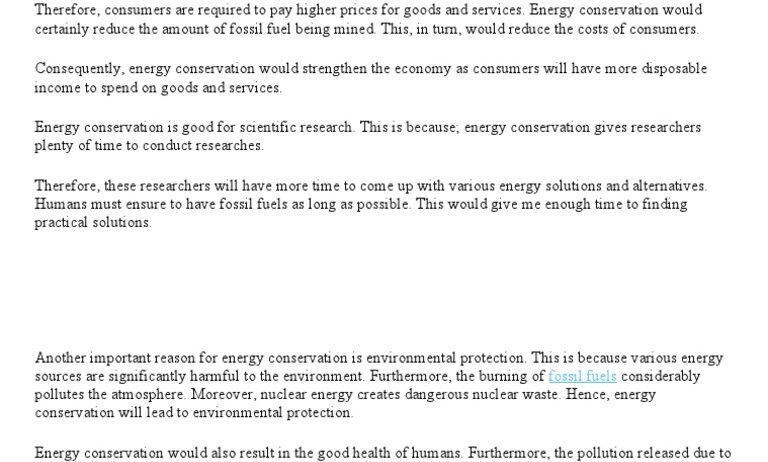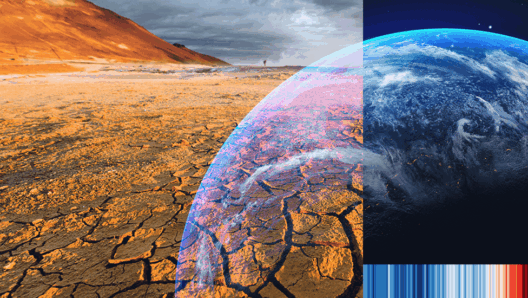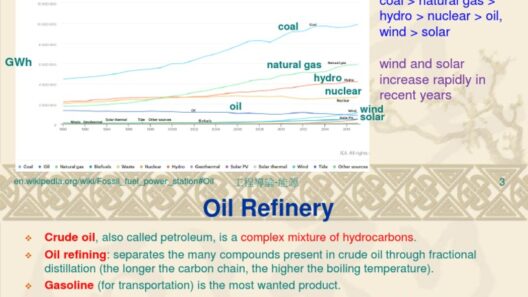Energy conservation is a crucial topic within the realm of geography, intertwining with the broader tapestry of our environment. It is a practice rooted in the prudent use of energy resources, advocating for a deliberate reduction in energy consumption. This riveting concept enhances understanding of both the physical and social landscapes we inhabit. The practice of energy conservation is not merely an act of saving; it involves an intricate balance of ecology, economy, and societal structures, all contributing to the sustenance of our planet’s vitality.
To commence, it’s imperative to elucidate the fundamental principles of energy conservation. It revolves around the concept of using less energy to perform the same task or achieve the same results. This can manifest in diverse forms, such as energy-efficient appliances, modified behavioral patterns, or the use of renewable resources. Electricity, natural gas, oil, and coal are traditional energy sources, but the imperative shift towards renewable energy—solar, wind, hydropower—carries enormous implications for geography and environmental policy.
A common observation that underpins this discussion is the observable waste of energy within myriad sectors, from residential homes to expansive industrial facilities. In an age dominated by technology and ceaseless consumption, excessive energy use has become a habitual norm. This awareness raises critical questions about human consumption patterns and socio-economic motivations. What drives individuals and societies to consume excessively? Is it rooted in a fundamental misunderstanding of resource availability, a lack of foresight regarding environmental impacts, or perhaps a cultural inclination towards immediacy and convenience?
Diving deeper, one can discern the tantalizing intersection of energy conservation with geographical dynamics. The location of resources, population density, and urban versus rural settings play pivotal roles in energy consumption patterns. Urban areas often exhibit a heightened demand for energy, leading to increased emissions and resource depletion. Conversely, rural areas may benefit from localized renewable energy initiatives, showcasing how geography can facilitate innovative conservation strategies.
Moreover, geographical variations also influence energy conservation strategies. Different climates necessitate unique approaches to energy use. For instance, regions experiencing extreme cold require substantial heating, while warmer climates prioritize cooling systems. This geographical context emphasizes the need for tailored energy conservation measures, directly aligned with environmental conditions. Understanding these nuances fosters a realization that energy conservation isn’t a one-size-fits-all paradigm; it requires localization and contextual adaptation.
In exploring this intricate landscape further, one must acknowledge the socio-political implications of energy conservation. Policies and regulations directly influence how resources are managed and consumed. Legislative frameworks often dictate what technologies are promoted and what projects receive funding. The geographical distribution of political power can shape energy landscapes dramatically since regions with political clout may have better access to sustainable resources and technologies. This realization underscores the importance of activism and advocacy within energy conservation efforts, with communities rallying for more equitable energy practices and policies.
Education and awareness constitute formidable allies in the struggle for energy conservation. Enhancing public knowledge about energy consumption, ecological footprints, and sustainable practices can lead to transformative changes. Schools and universities play a crucial role in this endeavor, instilling an environmental consciousness from an early age. Such educational initiatives can serve as catalysts, igniting passion and responsibility in future generations to prioritize conservation and sustainability, thus forming robust frameworks for societal action.
Furthermore, the economic ramifications of energy conservation warrant considerable attention. The onus of conservation often depends on financial incentives for both individuals and organizations. Investments in energy-efficient technologies can initially appear daunting, yet they yield substantial savings over time. Additionally, as renewable energy sources burgeon, economies are poised to transition toward sustainability more fluidly. The geographical distribution of these resources can dictate economic opportunities, with regions rich in solar or wind potential becoming epicenters for green innovation.
As we navigate through these multifaceted discussions, it becomes apparent that energy conservation transcends mere numbers and statistics. It is also a matter of values and ethics. Preserving our environment demands a collective re-evaluation of priorities. The dire urgency of climate change exhibits itself in extreme weather events, diminishing resources, and erratic ecological shifts, urging citizens worldwide to recalibrate their energy strategies proactively. Recognizing the directors of this conversation as citizens of Earth, we all hold a stake in the future of our shared environment.
The practices of energy conservation beckon a comprehensive understanding of our environments. Such practices are not only vital for mitigating the impacts of climate change but are also essential for fostering sustainable growth. By grasping the nuances of energy conservation within the geographical context, individuals can cultivate a sense of stewardship towards the planet. We are called to act, ensuring that future generations inherit a world that boasts a rich tapestry of resources, unspoiled landscapes, and flourishing ecosystems.
In conclusion, energy conservation is an intricate tapestry woven with the threads of ecology, economy, and social justice. This collective endeavor requires an appreciation of geographical nuances, an awareness of historical context, and a commitment to innovative practices. Striving for energy efficiency not only aids in mitigating climate change but also enriches our collective global narrative, solidifying our responsibility as stewards of our planet’s future.






